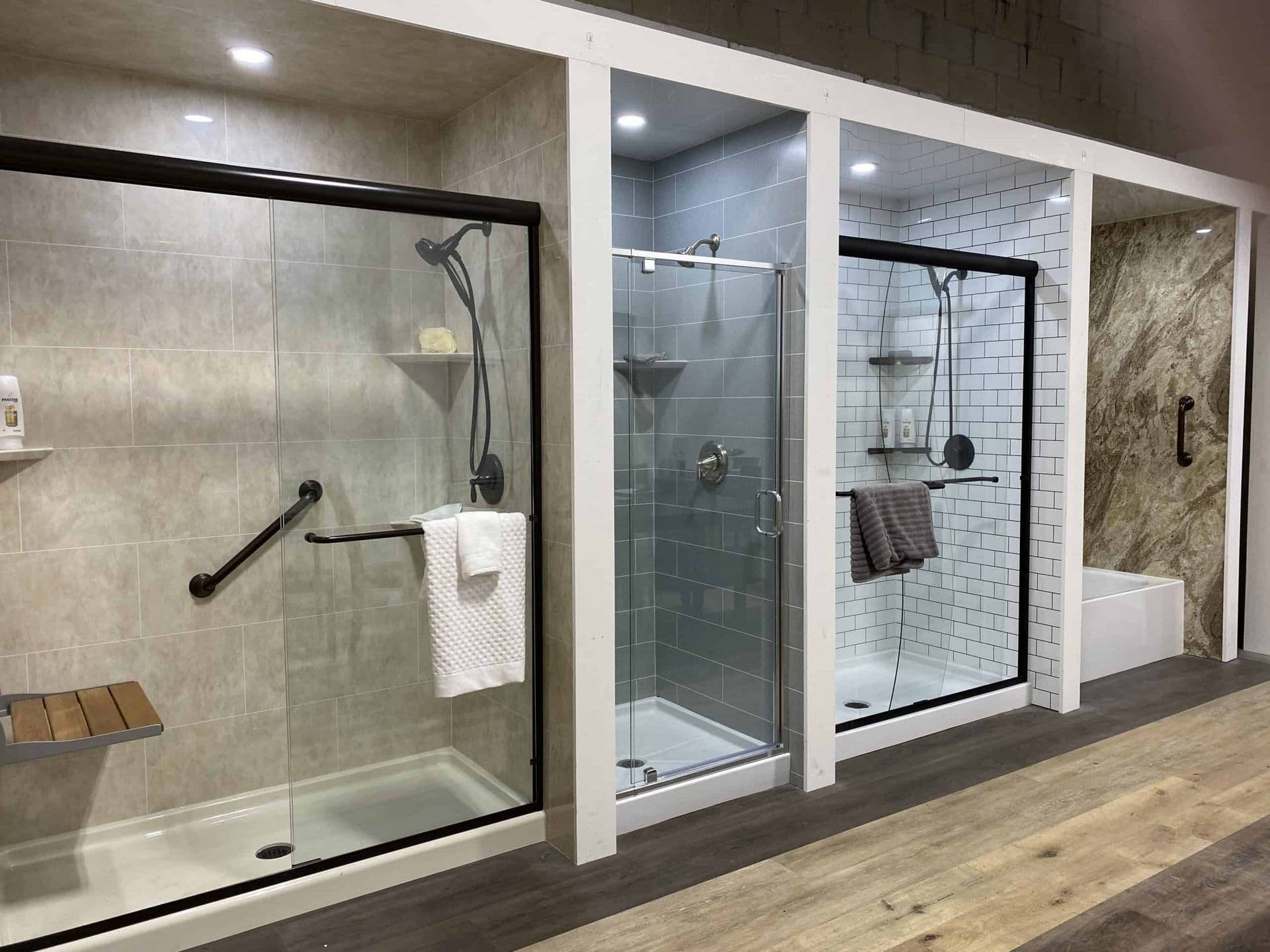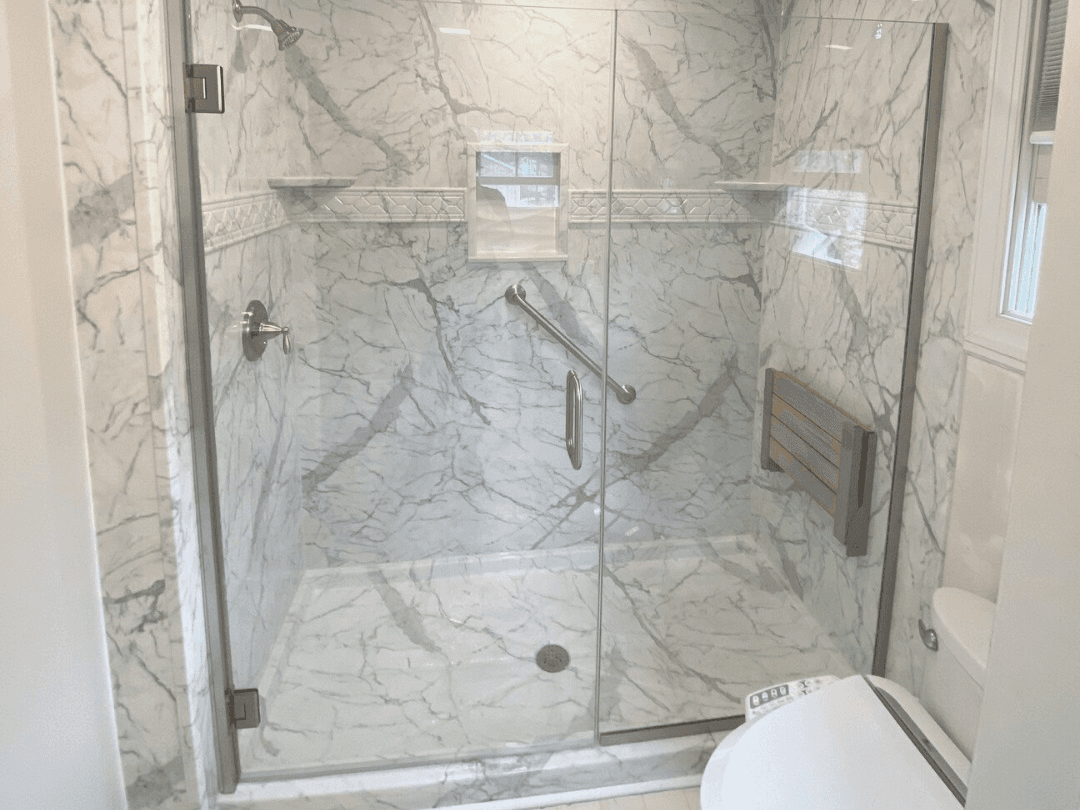
Should you Insulate Behind Shower Walls?
If the exterior walls behind showers and tubs are not insulated and air sealed, it may result in cold leaky parts of the house that lessen comfort, waste energy, and can lead to mold growth. Neglecting to insulate and air seal behind shower walls can cause significant heat loss, which can make showers, tubs, and bathrooms chilly. The insulation behind shower walls should be equivalent to the insulation installed in the rest of the exterior walls. They are often covered with an air barrier of rigid foam insulation, non-paper-faced drywall, or cement backer board sealed at the seams and edges to provide a continuous air seal. Any type of insulation can be installed behind shower walls as long as they are in full contact with the air barrier and fills the void.
Scope of Insulation
An air barrier is installed behind the exterior walls of the showers and tubs without misalignments, gaps, compressions or voids. The wall cavities should be covered with a taut air barrier and other supporting materials to create a continuous thermal barrier and prevent sagging of the cavity insulation. All gaps, seams, and holes in the air barrier can be sealed with foam or caulk before installing a shower. Some of the materials that can be used to create a firm air barrier include glass mat gypsum, fiber-reinforced gypsum, fiber-cement, or cementitious backer panels reinforced with fiber mat.
Benefits of Insulating Behind Shower Walls
- Efficient Heating and Cooling
Good insulation behind shower walls can make your home more energy-efficient as it retains both heat and air conditioning. It creates a blanket-like barrier between your shower and extreme outdoor temperatures. As a result, your HVAC system will not have to work as hard as it would if you did not have any kind of insulation behind your shower walls. This means your energy bills will be much lower the fact that insulated walls can save up to 40 percent in heating and cooling costs.
- Improves Moisture Control
Moisture that is trapped within the walls of your home can cause several problems that might result in costly repairs. Trapped moisture within the walls can cause mold, rot, or stains when frozen patches of moisture melt. A vapor resistant membrane provides better insulation caused by moisture from daily activities such as showering and washing. Insulating behind shower walls improves moisture control, which in turn reduces the chances of mold growth.
- Sound Dampening
Apart from retaining heat and minimizing condensation, insulating behind shower walls also provides better acoustics by reducing annoying sounds from outdoors or between rooms. This gives you peace of mind when taking a shower as it minimizes the level of noise coming from the bathroom or other surroundings. If you do not like the sound of water splashing on the floor every time you are taking a shower, then proper insulation behind shower walls can prevent the distractive sound by containing it to the bathroom.
- Long-Term Savings
Although the initial costs of insulating behind shower walls can be high, you can benefit from long-term savings in the end. Homeowners who have installed structural insulated panels behind their shower walls notice immediate savings in their heating and cooling costs. You can expect to save between 20 to 40 percent on yearly heating bills. This makes it an affordable alternative since your HVAC system will have to work less than usual to compensate for the heat loss.
What is the Best Bathroom Insulation Material?
If you have decided to insulate behind shower walls then consider materials with a high R-value rating. Choosing higher numbers means that the insulation material will offer more effective and may last longer. Sprayed insulation such as foam and cellulose are considered smarter choices compared to fiberglass, which tends to be more porous and susceptible to moisture retention.
A foam pipe insulation can also be ideal for plumbing that runs behind shower walls as it keeps the pipes warmer during cold months. You can try a soy-based foam solution if you prefer a ‘greener’ solution as it is resistant to both mold and mildew. The insulation needs to stay dry once it is in place. This is made possible through the installation of a vapor retarder or a vapor barrier, which is an essential step, required in some building codes.
Insulating behind shower walls is not common in some homes but offers more benefits in terms of comfort, energy and cost savings, and sound-dampening properties. The best time to insulate behind shower walls is during new construction. However, you can still add insulation to existing walls without having to tear off the drywall. Whatever the case, it is important to follow the regulations in your area since some building code requires the minimal installation of insulation in the exterior walls of a house.

New Year Savings Event!
$1,500 OFF Your Bath Remodel!

$0 Down, $0 Interest, $0 Payments until 2027!*
Bathroom Pros New Jersey
5-Star Reputation
Our customers rate us 5 out of 5 on Google, and more.
Stress-Free Process
Start to finish, you’re in for a pleasant experience.
Special Financing
Payments starting as low as $1.80 per day.

New Year Savings Event!
$1,500 OFF Your Bath Remodel!
Contact Us

Mon-Fri: 9AM-5PM
Sat: 10AM-3PM
Sun: Closed



